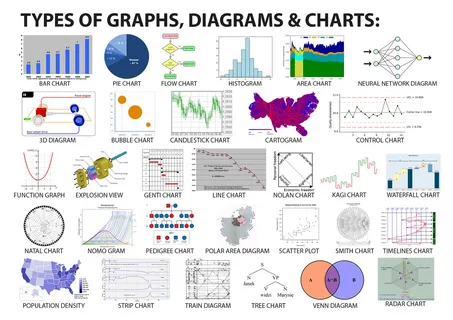How to Thrive in a Fast Paced World: Tips for Success in 2025
In today’s world, everything seems to move faster. From work to social lives, we are constantly adjusting to new challenges and opportunities in a fast-paced environment. Whether you’re dealing with a high-pressure job or simply navigating a fast-paced lifestyle, it’s essential to find ways to manage stress, stay productive, and maintain balance.
In this post, we will explore what it means to live and work in a fast-paced world, offer practical tips for success, and address how to thrive despite the constant hustle. By understanding the intricacies of a fast-paced environment and implementing the right strategies, you can achieve success while maintaining your well-being.
Understanding the Fast-Paced Lifestyle
What Defines a Fast-Paced Lifestyle?
A fast-paced lifestyle is characterized by rapid changes, high energy, and a constant demand for attention. People who live in fast-paced environments often juggle multiple responsibilities, deadlines, and events. This type of lifestyle can be found in bustling cities, high-demand jobs, and even in personal schedules that leave little time for rest.
One of the key aspects of a fast-paced life is time management. When you’re constantly on the move, finding efficient ways to prioritize tasks becomes critical. A fast-paced lifestyle can also mean constant learning and adapting to new technologies or practices. For some, this lifestyle offers excitement and personal growth, while for others, it can feel overwhelming.
Pros and Cons of Living in a Fast-Paced World
Living a fast-paced lifestyle has both its ups and downs. On the positive side, it can lead to career advancement, new opportunities, and an adrenaline rush from constant movement. Fast-paced environments often promote creativity, innovation, and adaptability, as individuals are pushed to think on their feet and make quick decisions.
However, there are also significant drawbacks. The constant pressure and urgency can lead to burnout, stress, and anxiety. If not managed properly, the fast pace can negatively impact personal relationships, mental health, and overall well-being. It’s crucial to balance speed with mindfulness, taking time to rest and recharge when necessary.
The Challenges of Fast-Paced Work Environments
Managing Stress and Pressure in a Fast-Paced Job
One of the most common challenges in fast-paced jobs is managing the constant stress and pressure. Deadlines are tight, tasks are numerous, and the expectations for performance can be high. Stress can quickly escalate when you’re juggling multiple projects, trying to meet the demands of clients, or handling unexpected issues.
To manage stress effectively, it’s important to adopt stress-reducing techniques such as deep breathing, meditation, or mindfulness exercises. Setting realistic goals and breaking tasks into smaller, manageable steps can also help alleviate pressure. Additionally, seeking support from colleagues and supervisors can provide relief during high-stress periods.
Burnout Risk in Fast-Paced Careers: How to Prevent It
Burnout is a real risk in fast-paced careers, especially when you’re working long hours under constant pressure. Symptoms of burnout include emotional exhaustion, decreased productivity, and a lack of motivation. The key to preventing burnout is to set boundaries and make self-care a priority.
Taking regular breaks, engaging in physical activity, and ensuring you’re getting enough sleep are all important ways to maintain energy and avoid burnout. It’s also essential to recognize the signs of burnout early and take action before it becomes overwhelming.
How to Thrive in a Fast-Paced Work Setting
Time Management Tips for Fast-Paced Jobs
In a fast-paced work environment, time management is critical to staying organized and productive. Prioritize your tasks by urgency and importance, and use tools such as to-do lists, calendars, and project management software to keep track of deadlines.
One effective time management technique is the Pomodoro Technique, which involves working in 25-minute intervals followed by short breaks. This method helps improve focus and reduces mental fatigue, making it easier to stay productive throughout the day.
Staying Focused and Productive in High-Energy Environments
Staying productive in a fast-paced work setting requires focus and discipline. Start by eliminating distractions, such as unnecessary meetings or excessive phone usage. It’s also helpful to create a clean, organized workspace that allows you to stay focused on your tasks.
Another useful strategy is batch processing, where you group similar tasks together and tackle them all at once. This reduces the mental load and increases efficiency. Focus on one task at a time, and avoid multitasking, as it can lead to errors and decreased productivity.
Fast-Paced Careers: Are They Right for You?
Top High-Energy Jobs in 2025
In 2025, many fast-paced careers are expected to be in high demand. These include positions in technology, healthcare, marketing, and finance. Fast-paced jobs like software developers, healthcare professionals (such as nurses and paramedics), digital marketers, and project managers all require quick thinking, adaptability, and the ability to handle pressure.
Fast-paced roles often come with higher salaries, more opportunities for advancement, and the potential for exciting, challenging work. However, they also demand long hours and a high level of commitment, which can take a toll on personal time and mental health if not properly managed.
The Mental and Physical Demands of Fast-Paced Professions
While fast-paced careers can be rewarding, they can also be physically and mentally demanding. The pressure to perform under tight deadlines, combined with the stress of constant multitasking, can lead to burnout and health issues. It’s important to be mindful of both your mental and physical health when considering a fast-paced job.
Physical activity, healthy eating, and regular breaks can help mitigate the impact of stress on your body. Additionally, mental health practices such as therapy or relaxation techniques can be essential for long-term success in fast-paced careers.
Balancing Work and Life in a Fast-Paced Job
Finding Time for Family and Personal Interests
In a fast-paced job, it can be challenging to maintain a healthy work-life balance. However, it’s essential to set boundaries and make time for family and personal interests to avoid burnout and maintain overall well-being. Scheduling time for hobbies, social activities, and rest can help you recharge and prevent your work from overtaking your life.
A helpful tip is to schedule your personal time just as you would a work meeting. This ensures that you’re prioritizing self-care and making time for important activities outside of work.
Setting Boundaries to Avoid Overworking
Overworking is a common issue in fast-paced environments, especially for those with ambitious career goals. It’s essential to set clear boundaries, such as not checking work emails after hours or taking regular weekends off. Communicating your availability to colleagues and managers can help create a healthy work-life separation.
The Psychology Behind Fast-Paced Environments
How Fast-Paced Environments Affect Mental Health
Working in fast-paced environments can have a significant impact on mental health. High levels of stress, anxiety, and pressure can lead to emotional exhaustion and burnout if not properly managed. It’s important to recognize when stress is affecting your mental health and seek support when needed.
Mindfulness practices, relaxation techniques, and cognitive-behavioral strategies can help manage the psychological effects of fast-paced environments. Regular mental health check-ins, whether through therapy or self-reflection, are also crucial for maintaining a healthy mindset.
Overcoming Anxiety and Stress in Fast-Paced Jobs
Managing anxiety and stress in a fast-paced job requires developing healthy coping strategies. These might include taking short walks during breaks, engaging in deep breathing exercises, or practicing mindfulness meditation. Developing a supportive network at work, where colleagues share similar challenges and solutions, can also help reduce feelings of isolation and stress.
Wrapping Up
Thriving in a fast-paced world isn’t easy, but it’s entirely possible with the right mindset and strategies. By understanding the unique challenges of fast-paced environments, adopting effective time management techniques, and prioritizing your mental and physical well-being, you can excel in both your career and personal life.
While the fast pace of modern life can be demanding, it also offers opportunities for growth, excitement, and success. Remember that balance is key—take time to rest, recharge, and celebrate your achievements along the way.
FAQs
- What are the signs of a fast-paced work environment?
- Tight deadlines, frequent multitasking, and high expectations are signs that you’re in a fast-paced work environment.
- How do I manage stress in a fast-paced job?
- Time management, taking breaks, and practicing mindfulness can help reduce stress in fast-paced jobs.
- What are the benefits of living a fast-paced lifestyle?
- A fast-paced lifestyle can offer career growth, new opportunities, and excitement.
- How can I avoid burnout in a fast-paced job?
- Set boundaries, take breaks, and prioritize self-care to avoid burnout.
- What are the best fast-paced careers for 2025?
- Careers in tech, healthcare, and digital marketing are among the top fast-paced jobs expected in 2025.
- How does a fast-paced lifestyle affect mental health?
- High stress and constant pressure can negatively impact mental health, but mindful practices can help manage these effects.
- Is a fast-paced job suitable for everyone?
- Fast-paced jobs require high energy and adaptability, making them suitable for individuals who thrive under pressure.
- Can I maintain a work-life balance in a fast-paced job?
- Yes, with careful planning and boundary-setting, it’s possible to maintain work-life balance.
- What are the key challenges of fast-paced environments?
- Stress, burnout, and the difficulty of balancing personal and professional life are common challenges.
- How do I improve productivity in a fast-paced environment?
- Time management techniques, focus, and eliminating distractions can significantly improve productivity in fast-paced settings.











Your article helped me a lot, is there any more related content? Thanks!
Thank you for your sharing. I am worried that I lack creative ideas. It is your article that makes me full of hope. Thank you. But, I have a question, can you help me?